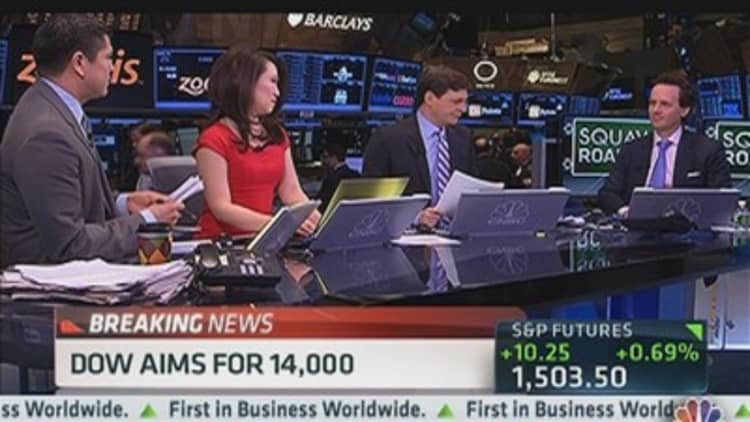
Joe Lavorgnia, chief economist at Deutsche Bank, criticized the Fed's strategy and sees broad "collateral financial damage" once interest rates eventually edge higher.
"They have the pedal pressed so far down, I just think it's going to end so badly," said Lavorgnia on CNBC's "Squawk on the Street" on Friday. He was commenting on the Fed's strategy of near-zero interest rates.
"When rates go higher, they're going to go so much higher than people anticipate and it's going to cause so much collateral financial damage," Lavorgnia said.
Comparing the Fed to a driver speeding on the highway while text messaging, Lavorgnia expects it will "definitely be worse" than the recession in 1994. "We're seeing various little bubbles pop up in ancillary markets where people are literally reaching for yield. The question is just when does it happen?"
Agreeing with Lavorgnia's position, Art Hogan, analyst at Lazard Capital Markets, said on a monthly basis he sees 2013 being the year when the Fed "starts trimming back on quantitative easing." He thinks they'll do it "long before" unemployment reaches 6.5 percent, which he thinks may not happen until the second half of 2014.
Although both Hogan and Lavorgnia are concerned about the risk posed by the Fed, they see Friday morning's jobs report as a positive sign for the economy. "The economy looks a lot better after the fact. This momentum will carry into the new year and we know the economy is more healthy," said Lavorgnia. As Americans have more income, they'll be in a better position to absorb this year's tax hikes, Lavorgnia added.
(Read more: Economy Adds Another 157,000 Jobs; Rate Up to 7.9 Percent)
— By CNBC's Paul Toscano. Follow him on Twitter and get the latest stories from Squawk on the Street @ToscanoPaul

